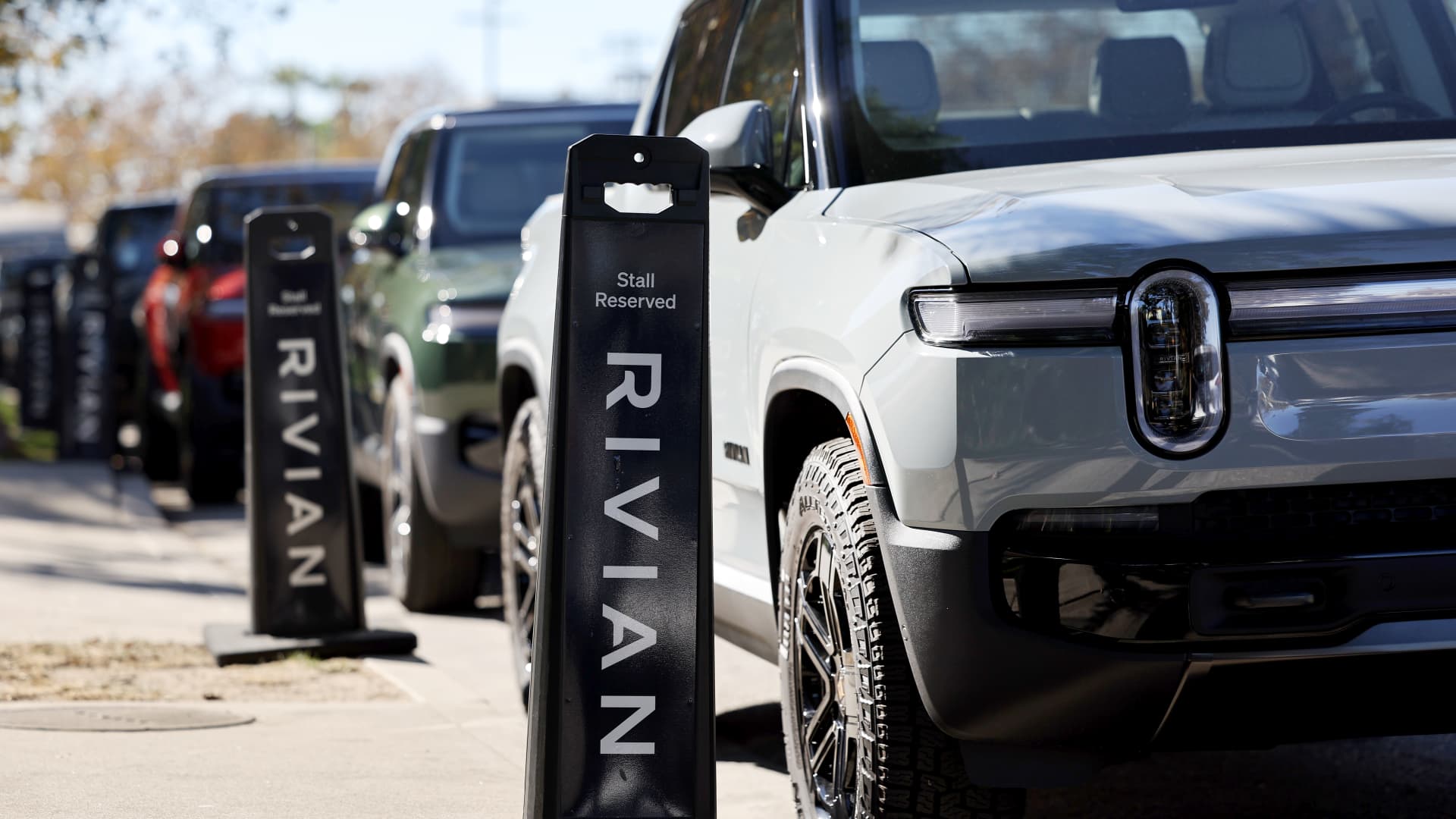Rivian Achieves 2024 Production Milestone: A Turning Point for the Electric Vehicle Market
In a remarkable display of resilience and innovation, Rivian has successfully met its 2024 vehicle production target. This achievement is particularly noteworthy considering the company had previously adjusted its projections downward, raising concerns among investors and industry analysts alike. The news has sparked discussions about Rivian’s future trajectory within the fiercely competitive electric vehicle (EV) market and its broader implications for the automotive industry as a whole.
Understanding Rivian’s Production Milestone
Rivian, known for its electric trucks and SUVs, has made substantial strides in ramping up production to meet consumer demand. The company’s latest announcement confirms that it has not only met but exceeded its production goals for 2024. This milestone comes after a turbulent period where Rivian faced challenges such as supply chain disruptions and manufacturing delays, which had led to a cautious outlook on its ability to scale operations effectively.
This production milestone is significant for several reasons:
- Investor Confidence: Meeting production targets can reinstate investor confidence, which is crucial for a company that relies heavily on external funding.
- Market Position: It solidifies Rivian’s position as a serious contender in the EV market, especially against established players like Tesla and new entrants such as Ford and GM.
- Consumer Demand: The ability to meet production targets reflects strong consumer demand and a successful response to market needs.
The Competitive Landscape of the Electric Vehicle Market
The electric vehicle market has been experiencing exponential growth, driven by increasing consumer awareness of climate change and the need for sustainable transportation solutions. However, this growth comes with its own set of challenges, including intense competition, fluctuating raw material prices, and evolving regulatory landscapes.
Rivian’s Competitive Strategy
To navigate this competitive landscape effectively, Rivian has adopted several strategies:
- Focus on Adventure Vehicles: Rivian has carved a niche by marketing itself as an adventure vehicle brand, appealing to outdoor enthusiasts with its R1T pickup and R1S SUV.
- Innovative Technology: The company has invested heavily in technology, from autonomous driving capabilities to advanced battery systems, setting itself apart from competitors.
- Sustainable Practices: Rivian emphasizes sustainability in its manufacturing process, which resonates with environmentally conscious consumers.
These strategies not only enhance Rivian’s brand identity but also position it favorably against larger automotive giants that are transitioning to electric vehicles.
Impact on the Electric Vehicle Industry
The successful achievement of Rivian’s production milestone is poised to have far-reaching effects on the electric vehicle industry:
1. Setting New Standards
Rivian’s ability to meet its production goals sends a strong signal to other manufacturers about the importance of setting achievable yet ambitious targets. As more companies enter the EV space, Rivian’s success could inspire others to innovate and improve their production methodologies.
2. Boosting Consumer Confidence
As Rivian hits its production milestones, consumer confidence in electric vehicles is likely to increase. A successful production run assures potential buyers that they can expect reliable and available products, thus encouraging more people to consider switching to electric vehicles.
3. Influencing Investment Trends
Investors are always on the lookout for companies that demonstrate growth potential. Rivian’s success could attract more investment into the EV sector, pushing other companies to enhance their production capabilities and technological innovations to stay competitive.
Challenges Ahead for Rivian
- Supply Chain Issues: The global supply chain continues to be volatile, and any disruptions could impact Rivian’s production capacity.
- Regulatory Changes: As governments impose stricter emissions regulations, Rivian must adapt and ensure compliance, which could entail additional costs.
- Market Saturation: With more manufacturers entering the electric vehicle market, Rivian faces the risk of market saturation, requiring continuous innovation to maintain its competitive edge.
Conclusion: Rivian’s Role in Shaping the Future of Electric Vehicles
In summary, Rivian’s achievement of its 2024 production milestone represents a pivotal moment not only for the company but also for the broader electric vehicle market. As Rivian continues to ramp up production and innovate, it sets a precedent for other manufacturers while reinforcing consumer trust in electric vehicles.
Moving forward, Rivian must navigate the complexities of the automotive landscape, but with a strong foundation and a proven track record, it holds the potential to significantly influence the industry’s future. As consumers increasingly seek sustainable and innovative transportation solutions, Rivian’s success could herald a new era of electric vehicles that prioritizes both performance and environmental responsibility.
See more Business Focus Insider Team

